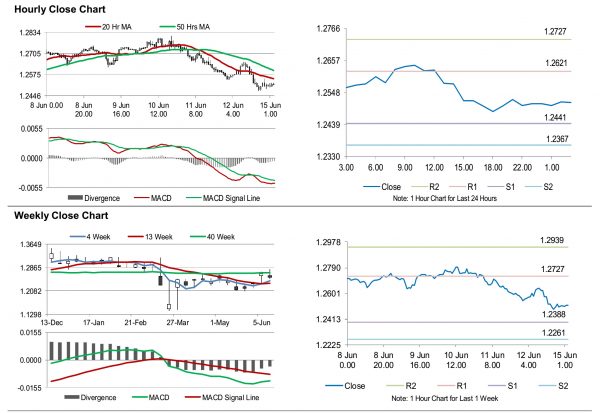For the 24 hours to 23:00 GMT, the GBP declined 3.87% against the USD and closed at 1.2524 on Friday, on the back of dismal economic data.
On the data front, UK’s gross domestic product (GDP) plunged 20.4% on a monthly basis in April, registering its fastest pace since 1997 and more than market expectations for a drop of 18.4%. In the previous month, GDP had recorded a fall of 5.8%. Additionally, industrial production slumped 20.3% on a monthly basis in April, more than market forecast for a drop of 15.0% and compared to a fall of 4.2% in the previous month. Moreover, consumer inflation expectations slowed to 2.9% in May, compared to 3.0% in the previous month. Furthermore, manufacturing production slumped 24.3% on a monthly basis in April, more than market consensus for a drop of 15.8% and compared to a decline of 4.6% in the earlier month. Also, the NIESR GDP estimate decreased 17.6% in three months ended May, compared to a revised drop of 10.3% in the previous month .Meanwhile, total trade balance recorded a deficit of £0.31 billion in April, compared to a revised deficit of £3.96 billion in the prior month.
In the Asian session, at GMT0300, the pair is trading at 1.2514, with the GBP trading 0.08% lower against the USD from Friday’s close.
The pair is expected to find support at 1.2441, and a fall through could take it to the next support level of 1.2367. The pair is expected to find its first resistance at 1.2621, and a rise through could take it to the next resistance level of 1.2727.
Amid lack of macroeconomic releases in the UK today, investor sentiment would be determined by global macroeconomic factors.
The currency pair is trading below its 20 Hr and 50 Hr moving averages.

